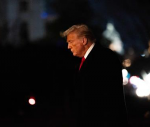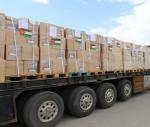You are here
Navigating a world in shock
Sep 21,2022 - Last updated at Sep 21,2022
PARIS — Make no mistake: We no longer live in a stable international rules-based order. The days of unipolarity and global liberalism are over, and we are now facing a confluence of shocks unlike anything most of us have seen in our lifetimes. No pilot is flying the plane: The closest thing we have to a cockpit, the G-20, is fractured and deadlocked, despite Indonesia’s valiant efforts as this year’s president.
The international institutions, norms and practices that we continue to rely on are increasingly being eclipsed by geopolitics. Whatever their rhetoric, China, Russia and the United States have lost faith in global institutions, withholding their support whenever it suits their interests. While the European Union, Japan, the United Kingdom, Canada, and major players from the Global South continue to support multilateralism, global governance cannot really be sustained without the participation of the world’s largest economies and military powers.
Making matters worse, the world is facing at least eight systemic challenges simultaneously. As former Canadian central bank governor Stephen Poloz explains in his book The Next Age of Uncertainty, “when multiple long-term forces are acting together on the economy through time, and interacting with one another as well, the economy itself can behave erratically and appear unstable”. Under these conditions, predictions and conventional policy tools stop working.
The first major challenge is Russia’s war in Ukraine, which shows no end in sight, notwithstanding the Ukrainian armed forces’ recent gains. The tit-for-tat weaponisation of economic linkages has generated a huge global energy shock that will aggravate deeper social and political crises in Europe and around the world this fall. While the G-7, Australia and South Korea have taken steps to freeze Russia out of the global dollar system and interbank messaging network, Global South powers have not joined the sanctions regime, leaving the G-20 split on this issue.
Second, despite the Biden administration’s recent legislative breakthroughs, US democracy is in deep crisis. Most decision-making remains crippled by legislative gridlock and an activist Supreme Court, and extremism is on the rise. In a recent book, the international relations scholar Barbara F. Walter warns that many well-known indicators of impending civil war are flashing red in the US. A major survey published in November 2021 found that 30 per cent of Republicans, and 18 per cent of Americans overall, agree with the statement: “Because things have gotten so far off track, true American patriots may have to resort to violence in order to save our country.”
Third, China is at a fork in the road. The 20th Party Congress this October almost certainly will solidify President Xi Jinping’s rule and install key powerholders for the next five years or longer. We will then see whether the regime intends to double down on its nationalist mobilisation and intensifying social control, including its economically disastrous “zero-COVID” policy, closed borders, and other restrictions.
Will China entrench its new isolation, or will it take some steps back towards international connectivity and economic liberalisation? The answer to that question will determine the answers to many others. As matters stand, the US and Chinese political trajectories are fuelling a confrontational spiral that cannot end well for either side.
Fourth, after a period of remarkable unity in response to Russia’s invasion of Ukraine, the EU is entering an extraordinarily risky period of intertwined energy, economic and social shocks. Italians seem poised to elect a right-wing nationalist government later this month; French governance is divided; and eastern member states remain vulnerable to Russian threats.
Fifth, climate-related disasters are intensifying globally, and much earlier than expected. Across South Asia, the Pacific, China, Europe, Africa, and the Americas, heatwaves, droughts, wildfires, and mega floods are disrupting lives, reducing food supplies, which were already endangered by Russia’s war, and fragmenting societies.
Sixth, there are still deep post-pandemic uncertainties with respect to supply chains, energy and food markets, and inflation. It is anyone’s guess what global financial markets will do this fall, but talk of tighter financial conditions and recession is in the air.
Seventh, these food, energy, climate, and economic shocks are likely to trigger social and democratic breakdown in many parts of the world, especially if the G-20 cannot agree on safety-net measures such as debt relief. Lebanon, Sri Lanka, Pakistan and Ethiopia are already in the throes of political and socioeconomic chaos.
Finally, the coming months will stress test global-governance mechanisms like never before. All eyes will be on the November 15-16 G-20 summit in Bali, the November 18-19 Asia-Pacific Economic Cooperation Summit in Thailand, and the November 6-18 COP27 climate conference in Sharm El-Sheikh, Egypt. Sadly, it is hard to expect much from any of these gatherings.
What should be done?
First, these interacting shocks must be faced with pragmatism, rather than ideology, recognising that a failure to act collectively will put the future of human civilisation itself at risk. Since we remain closely connected through technology, climate, travel and the broader world economy, global governance through exclusive regional or ideological clubs simply will not suffice.
Second, political leaders and policymakers must figure out how to match the kind of imagination that business and technology leaders have demonstrated in recent decades. There are huge untapped possibilities to be explored through alternative approaches to global and collective governance. These include new platforms like the Paris Peace Forum, Global Solutions Initiative, and Jeju Forum for Peace and Prosperity, which bring multiple actors together to incubate new models, or inter-regional groups such as the Alliance for Multilateralism. The G-20 should initiate a taskforce on common long-term existential questions and mutual misperceptions. We urgently need a competitive, bottom-up search for new ideas.
Third, large, systemically important players have a historic responsibility to contain their own military and security rivalries, and to support countries that face hardship as a result of the large powers’ actions. In the past, we have found ways to defuse the threat of mutual insecurity through regular global meetings and platforms like the Stockholm Conference on Confidence- and Security-Building Measures and Disarmament in Europe; we must do so again today.
As for all the other countries, companies, foundations, civil-society groups, and NGOs, the task now is to generate ideas and form networks and coalitions, with a focus on building resilience and developing anti-fragile systems. If the big players fail to do their part, our last chance may rest with these stakeholders in the middle.
Bertrand Badré, a former managing director of the World Bank, is CEO and founder of Blue like an Orange Sustainable Capital and the author of “Can Finance Save the World?” (Berrett-Koehler, 2018). Yves Tiberghien, co-chair of the Vision 20 Initiative, is professor of Political Science and director Emeritus of the Institute of Asian Research at the University of British Columbia. Copyright: Project Syndicate, 2022. www.project-syndicate.org











